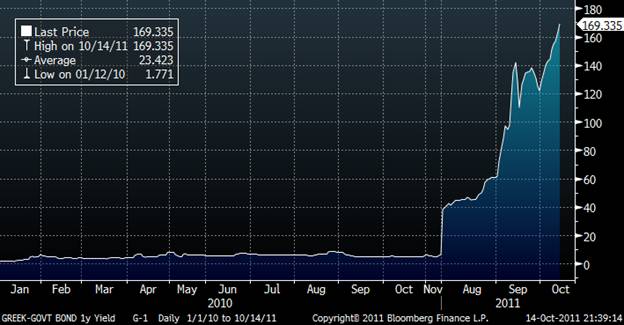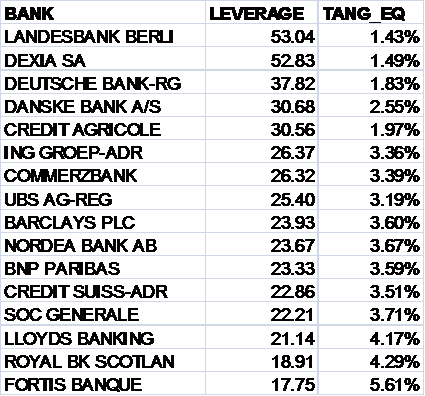..."From my perspective, Wall Street's "relief" about the economy, and its willingness to set aside recession concerns, is a mistake born of confusion between leading indicators and lagging ones. Leading evidence is not only clear, but on a statistical basis is essentially certain that the U.S. economy, and indeed, the global economy, faces an oncoming recession. As Lakshman Achuthan notes on the basis of ECRI's own (and historically reliable) set of indicators, "We've entered a vicious cycle, and it's too late: a recession can't be averted." Likewise, lagging evidence is largely clear that the economy was not yet in a recession as of, say, August or September. The error that investors are inviting here is to treat lagging indicators as if they are leading ones.
The simple fact is that the measures that we use to identify recession risk tend to operate with a lead of a few months. Those few months are often critical, in the sense that the markets can often suffer deep and abrupt losses before coincident and lagging evidence demonstrates actual economic weakness. As a result, there is sometimes a "denial" phase between the point where the leading evidence locks onto a recession track, and the point where the coincident evidence confirms it. We saw exactly that sort of pattern prior to the last recession. While the recession evidence was in by November 2007 (see Expecting A Recession ), the economy enjoyed two additional months of payroll job growth, and new claims for unemployment trended higher in a choppy and indecisive way until well into 2008. Even after Bear Stearns failed in March 2008, the market briefly staged a rally that put it within about 10% of its bull market high.
At present, the S&P 500 is again just 10% below the high it set before the recent market downturn began. In my view, the likelihood is very thin that the economy will avoid a recession, that Greece will avoid default, or that Europe will deal seamlessly with the financial strains of a banking system that is more than twice as leveraged as the U.S. banking system was before the 2008-2009 crisis."
..."A few weeks ago, I noted that Greece was likely to be promised a small amount of relief funding, essentially to buy Europe more time to prepare its banking system for a Greek default, and observed " While it's possible that the equity markets will mount a relief rally in the event of new funding to Greece, it will be important to recognize that handing out a bit more relief would be preparatory to a default, and that would probably be reflected in a failure of Greek yields to retreat significantly on that news."
As of Friday, the yield on 1-year Greek debt has soared to 169%. Greece will default. Europe is buying time to reduce the fallout.

The central problem facing the global economy here is leverage. In an economy where monetary authorities are at the ready to reignite bubbles after any setback, it has been possible for banks to get, say, $10 from shareholders, get another $20 by issuing bonds, get $70 from depositors, and then go out and make $100 of investments in loans, securities, Greek debt, and other assets, hoping that by leveraging shareholder capital ("equity") 10-to-1, they would earn a high return on that equity."

Weil ends his piece with a simple sentence: "Dexia's demise is only the start." We couldn't agree more."
No comments:
Post a Comment